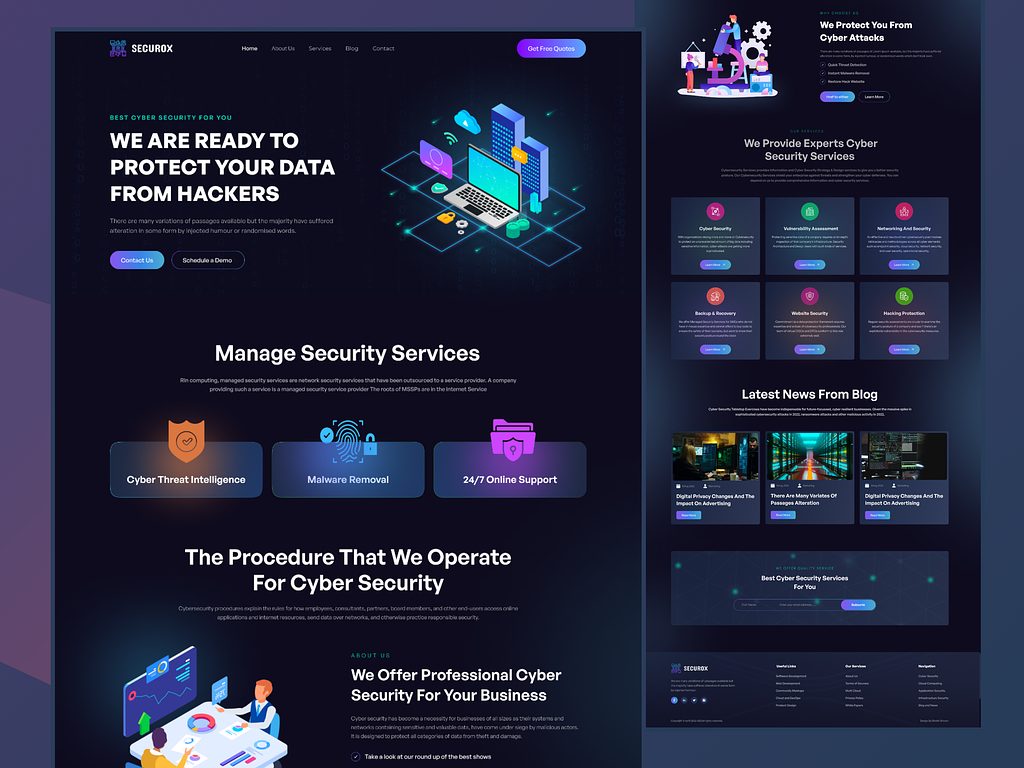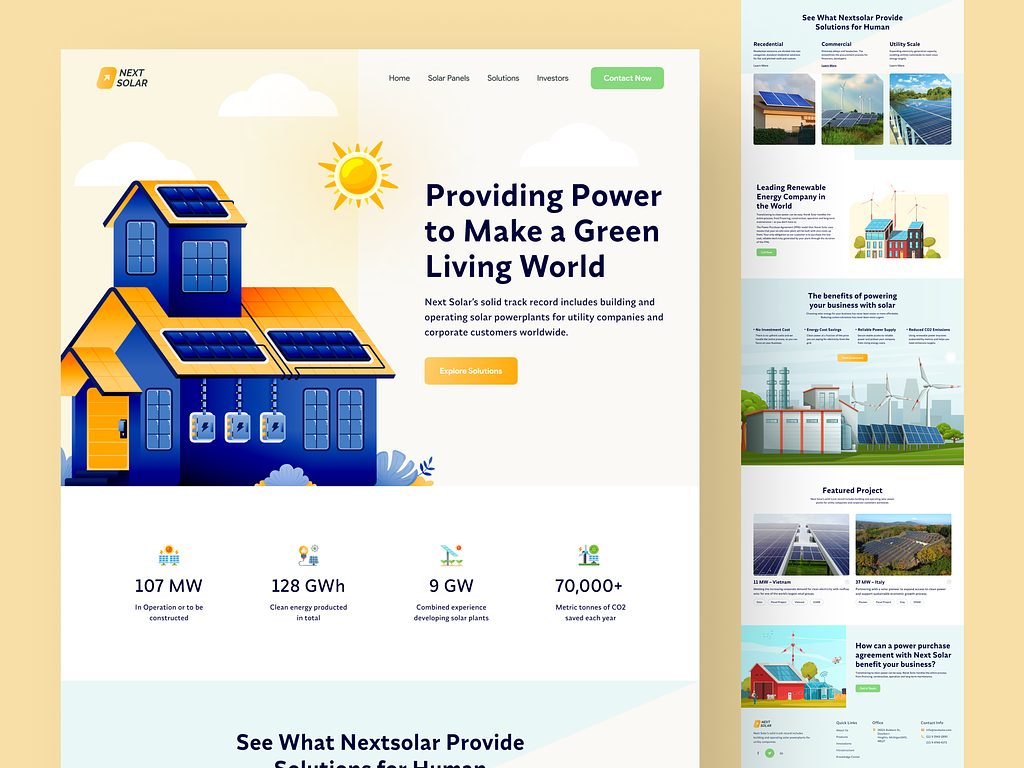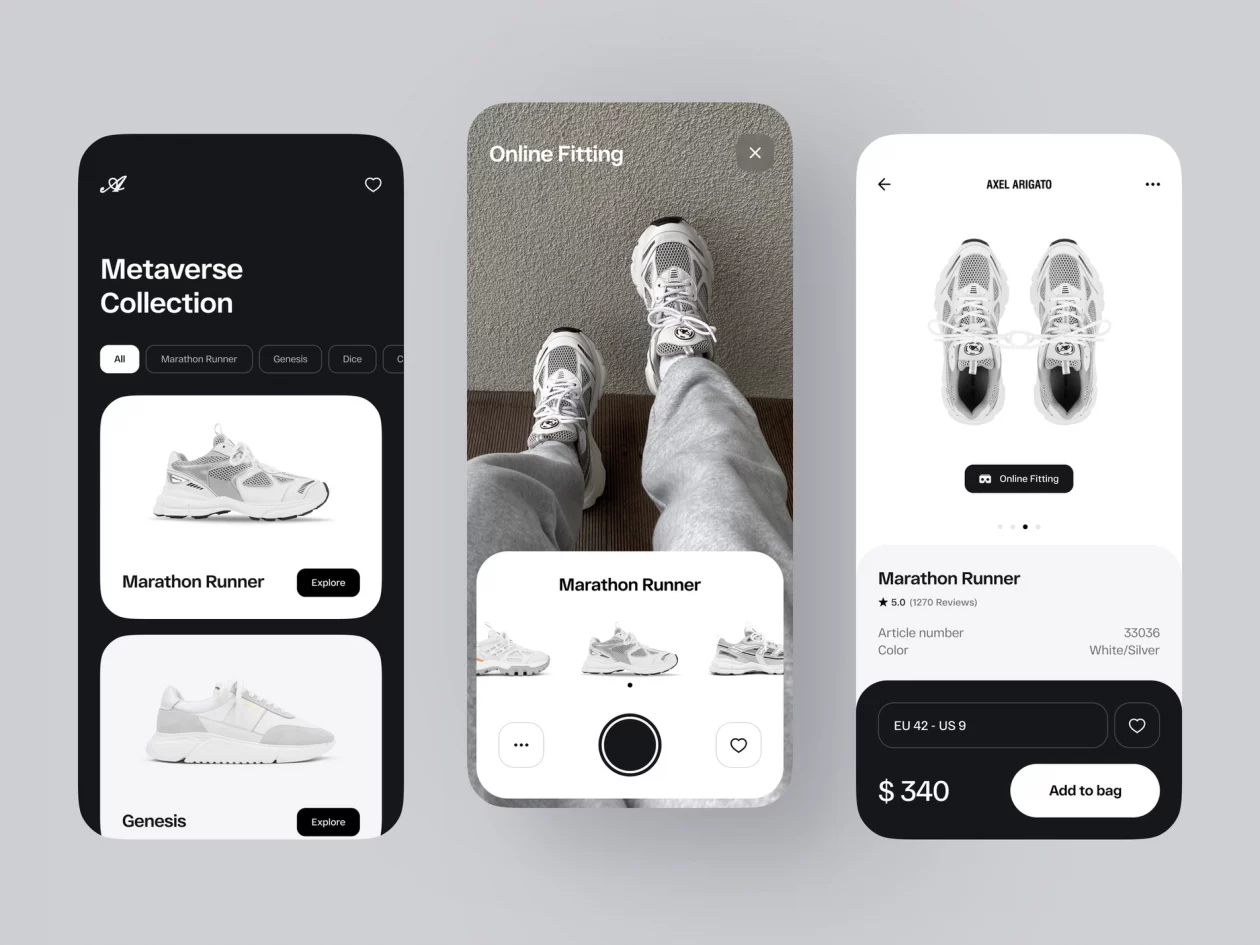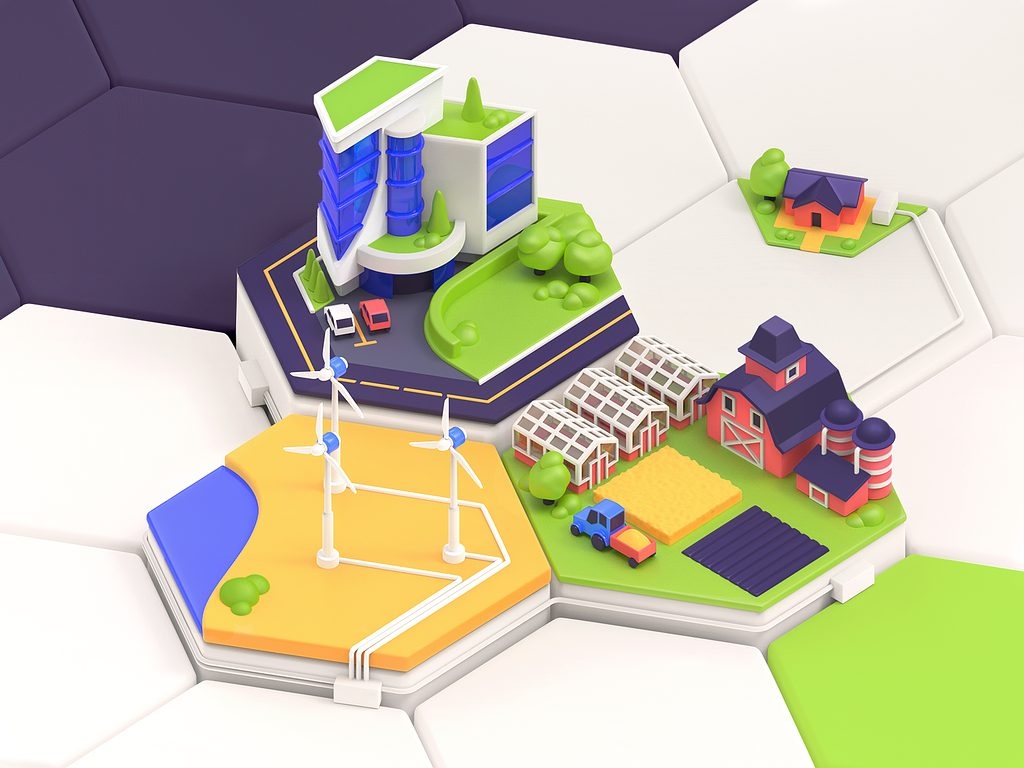Are you tired of playing catch-up with the ever-evolving world of technology? Do you find yourself constantly seeking the next big thing to stay ahead of the competition? For startups and product owners, staying ahead of the curve is not only crucial for survival but also a pathway to success.
Discovering new techs can be hard because it requires various expertises, precious time, and keen foresight to detect what will remain popular and what will be abandoned. We’ve done all the hard work for you and explored the top technology trends that will shape 2024 and revolutionize industries worldwide.
If you’re tired of being blindsided by emerging technologies, eager to gain an edge over competitors, and yearning to transform your small business into an unstoppable force, then this article is your guiding light.
Top technology trends for 2024
Artificial Intelligence (AI) and Machine Learning (ML)
These two technologies are going viral in all industries. They revolutionize the workflow by enabling computers to learn, reason, and make decisions almost like us, humans. For startups and product owners, AI and ML offer opportunities for automation, robotics, predictive analytics, personalized recommendations, and big data analysis. Which leads to higher user retention, profit, and fame.
If you want to dive into industries such as healthcare, finance, retail, and manufacturing, you can leverage Artificial Intelligence to improve diagnostics, optimize financial operations, enhance customer engagement, and speed up production processes.
For example, take a look at companies like Affectiva. It uses AI for emotion recognition, and this technology trend helps businesses detect customers’ reactions to products, improve safety, get accurate analytics, etc. Another company, DataRobot, offers a platform for automated machine learning. Both of these businesses have successfully leveraged AI and ML to disrupt their respective industries.
Internet of Things (IoT)
This concept refers to the network of interconnected devices that collect and exchange data via the Internet. You can integrate IoT into your products and services to enable remote monitoring, predictive maintenance, and real-time data analysis.
The emerging technology is very popular in smart homes and agriculture, but other industries such as healthcare and transportation can still benefit from IoT solutions. For example, doctors can use smart devices to monitor patients’ vital signs remotely, leading to improved patient care and reduced costs. As for transportation, this technology trend is a crucial design part of steering wheel control systems. It gives information on kilometers traveled and warns the drivers if they have exceeded the limit.

Smart home website concept by Conceptzilla
Startups like Particle, offering an Internet of Things platform for building connected products, and August, a smart lock company, have successfully leveraged the trend to create innovative solutions and drive business growth.
Blockchain technology
It provides a decentralized and transparent system for recording and verifying transactions. If you leverage the emerging Web 3.0 tech, you will enhance security, improve trust, and streamline processes.
By utilizing blockchain, you can create tamper-resistant digital ledgers, ensure data integrity, and enable secure peer-to-peer transactions. This technology trend of 2024 can also help you address data privacy concerns and eliminate intermediaries in transactions.
Meanwhile, startups like Chain, a blockchain infrastructure provider, and Chronicled, which offers supply chain solutions, have demonstrated the potential of this technology in driving innovation and efficiency.
Augmented Reality (AR) and Virtual Reality (VR)
AR overlays digital content in the real world using a smartphone camera or a special device, while VR immerses users in a simulated environment. Using these technologies, you have great potential to enhance marketing campaigns, improve product development processes, and create immersive customer experiences.
The trend has applications in various industries such as gaming, retail, real estate, education, etc. For instance, you can use Augmented Reality to provide virtual try-on experiences for customers in e-commerce, and Virtual Reality to simulate realistic training environments for employees.
As for real-life cases, there is a famous VR company – Oculus. It produced popular headsets Oculus Rift and Quest. According to the analytics, there are at least 5 million Oculus Quest 2 users in the world. Magic Leap, an AR headset manufacturer, created a device that gives enough field of view for the user while integrating digital content within it.
Edge computing
This technology trend brings computational power closer to the network edge (closest to users, devices, and data sources), reducing latency, enhancing security, and enabling real-time processing. So you can leverage edge computing to improve performance, ensure data privacy, and reduce reliance on centralized cloud infrastructures.
The technology has applications in various industries, including healthcare, autonomous vehicles, and industrial IoT. Startups and small businesses benefit from reduced latency in critical applications, improved data security, and cost savings in data transfer and storage. For instance, FogHorn provides edge intelligence software, and Zededa – the company offers an edge virtualization platform.

Cyber Security & Digital Hacking website by Sheikh Shovon
Quantum Computing
It is an emerging technology trend that has the potential to revolutionize various industries by offering exponential speed and energy efficiency advantages over classical computers. This type of computer holds promise for a wide range of applications in industries such as drug discovery, financial management, climate modeling, and more. With its help, people can finally address complex problems that were previously intractable for classical computers, potentially solving them in a matter of hours or minutes.
Right now, some major companies and startups are investing in quantum computing research and development. IBM, for example, is a leading player in the field and has made significant progress in the field. They offer access to their quantum systems through the IBM Quantum Experience, allowing developers and researchers to experiment with quantum algorithms. Other companies such as Google, Microsoft, and Intel are also investing in quantum computing research and exploring its potential applications.
Cloud computing
Together with quantum computing, small and medium businesses should consider cloud computing technologies as well. It refers to the delivery of computing services over the Internet, providing on-demand access to a wide range of resources and capabilities. The tool eliminates the need for organizations to manage and maintain their own physical infrastructure, such as servers and data centers. Instead, you can leverage cloud services providers offer to store data, run applications, and perform various tasks.
If you’re into app development, you’ve probably heard of Amazon Web Services (AWS) and Microsoft Azure. Both companies provide a wide range of cloud services, including virtual machines, storage, databases, and analytics.
5G technology
It has already made significant impacts on various aspects of business and consumer life. It provides high-speed wireless internet, enabling people to work remotely from their desired locations. It allows for reliable and fast connectivity, facilitating seamless communication and collaboration.
With this digital transformation, businesses that rely on real-time interactions and transactional processes can operate more efficiently. Edge computing, combined with 5G technology, enhances the responsiveness and reliability of critical applications. What’s more, it facilitates high-resolution video streaming, 3D content, 360-degree videos, and augmented reality experiences. This capability opens up new opportunities for you to engage your customers through immersive and interactive brand experiences.
Ericsson is a global leader in the telecommunications industry and plays a crucial role in the development and deployment of 5G networks worldwide. They provide infrastructure solutions and services to enable the implementation of the technology. Another example is Qualcomm. It is a renowned semiconductor and telecommunications equipment company. They are actively involved in the development of 5G technologies, including chipsets and modems, to power next-generation mobile devices.
Cybersecurity
Cybersecurity is a critical technology trend in today’s digital age. As automation advances, so do the methods and complexity of cyber threats, making it essential for companies to invest in cutting-edge protection measures and data privacy. According to Hiscox’s 2022 worldwide study, 43% of organizations reported a cyber attack in 2021, and 48% reported at least one in 2022.
Several startups and famous companies are at the forefront of creating innovative solutions to combat the threats. Here are some notable examples:
- Apiiro Security: it is a cybersecurity company that focuses on Code Risk Platform, helping organizations identify and manage security risks during the software development process.
- Bishop Fox: this one provides a range of services, including offensive security assessments, vulnerability research, and threat intelligence, to assist businesses to identify and address vulnerabilities.
- Abnormal Security: the company offers a cloud-based email security platform to protect organizations against email-based threats, such as phishing and business email compromise (BEC) attacks.

Solar Energy Technology by Nasim
Biotechnology
It is a rapidly growing field that combines biology and tech to develop innovative solutions for various industries.
This trend allows personalized medicine to tailor treatments based on an individual’s DNA by utilizing genomics and genetic information. The approach helps in providing more effective and targeted therapies. It also plays a crucial role in agricultural practices by developing crops with higher yields, resistance to pests, and lower toxic content. With biotechnology, people aim to create a more sustainable and nutrient-rich food supply.
Startups like Emulate are revolutionizing the biotech industry by expanding organ-on-a-chip technology. This approach mimics the functions of organs in a lab setting, allowing researchers to study diseases and test potential treatments more effectively.
Nanotechnology
In 2024, this tool is not sci-fi anymore. It involves manipulating and controlling matter at the nanoscale, which is the scale of individual atoms and molecules contributing to advancements in fields such as precision biotechnology, additive manufacturing, quantum computing, and composite materials. Nanotechnology is also being explored for applications in healthcare, electronics, energy, construction, and environmental sustainability.
As for the companies that already leverage this newborn trend, Hummink and CDotBio are worth mentioning. The first one is a startup specializing in 3D nano-printing technology. The second company provides low-cost genetic engineering solutions using carbon nanoparticles for crop gene editing, which is useful in agriculture.
Green-tech
Green technology, also known as green tech or cleantech, refers to the development and application of environmentally friendly and sustainable solutions to address various environmental challenges. It encompasses a wide range of sectors, including energy, transportation, waste management, agriculture, and more.
This emerging technology aims to reduce carbon emissions, conserve resources, promote renewable energy, and minimize the negative impact on the environment. As a technological trend, it has gained significant momentum in recent years, driven by the growing recognition of the need to combat climate change and create a more sustainable future.
Several startups and companies are actively developing green technology solutions. Here are some notable examples:
- Aurora Solar offers software for designing solar paneling systems. Their platform enables installers to accurately assess the solar potential of a location, optimize system design, and streamline the sales process.
- Northvolt is a company that manufactures sustainable lithium-ion batteries by recycling used-up batteries. They contribute to the circular economy by repurposing battery materials and reducing the environmental impact of production.

Axel Arigato Virtual fitting app concept by Conceptzilla
Choosing the right technology trends for your startup
How to make a choice and pick the tendencies fitting your project? Here are three options you should consider:
Evaluate and prioritize the trends
To choose the right technology for your startup, evaluate its relevance to your specific business needs and objectives. Consider factors such as scalability, compatibility with existing systems, and budgetary constraints. Prioritize tech that aligns with your long-term vision and has the potential to deliver tangible benefits to your business.
Consider compatibility when adopting new technologies
Aside from scalability to accommodate future growth, you should also pay attention to compatibility with your existing infrastructure, and potential integration challenges. Assess the impact on your workforce, ensure adequate cybersecurity measures, and plan for appropriate training and support. Additionally, consider the total cost of ownership, including upfront investments, ongoing maintenance, and potential ROI.
Stay informed and engage with the technology community
To stay updated with emerging trends, follow industry publications, attend conferences and webinars, and join relevant online communities. Speak with experts, participate in discussions, and seek feedback from peers and mentors. Collaborate with other startups, research institutions, and technology accelerators to stay at the forefront of technological advancements.
Conclusion
Staying up-to-date with technology trends is imperative for small businesses and product owners to remain competitive in their field. Tools like Artificial Intelligence, machine learning, the Internet of Things, blockchain, AR, VR, and edge computing offer immense potential for transforming industries and creating new opportunities. By embracing these tendencies, you will improve efficiency, enhance customer experiences, and pave the way for future growth.
Remember, the future belongs to those who embrace technology and harness its power to innovate, disrupt, and create lasting impact. Seize the opportunities of the future and embark on your journey to success. Ready to create an app jam-packed with cutting-edge tools? Contact us to bring your project to life.
